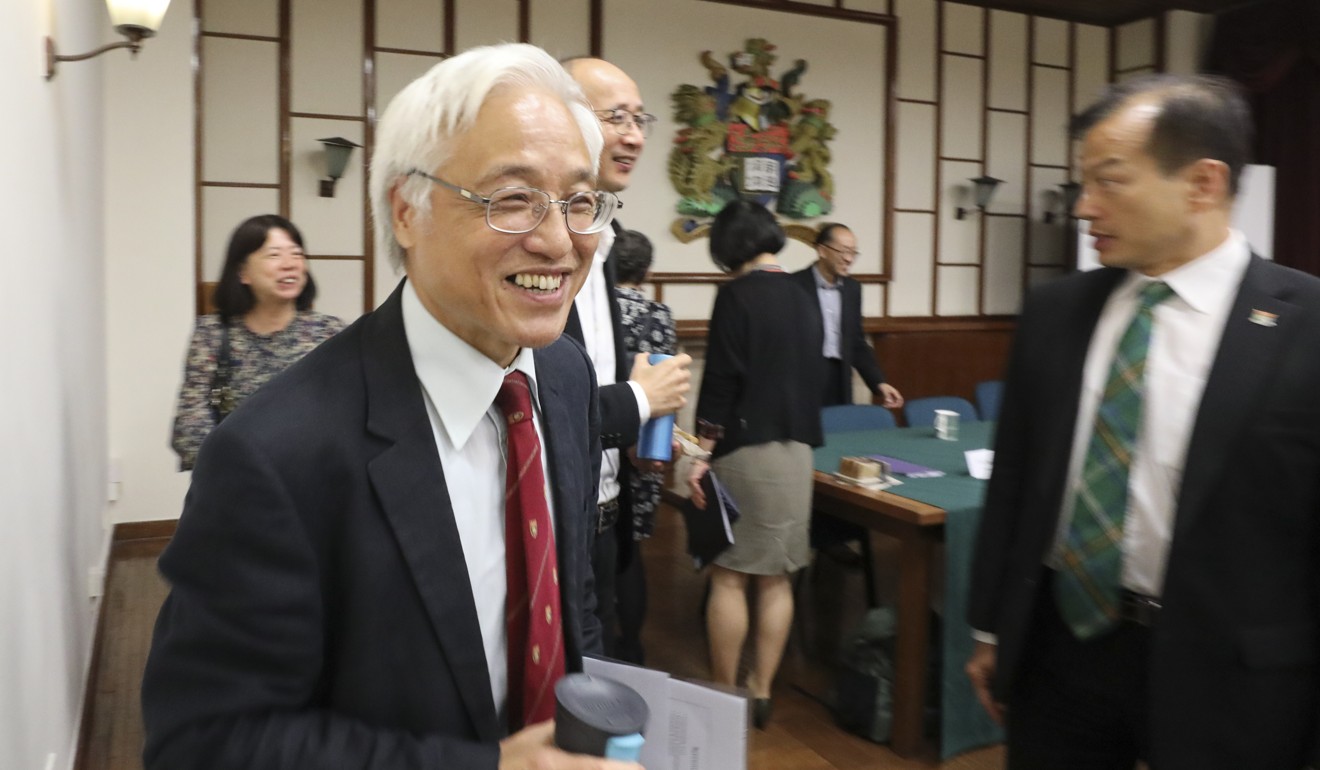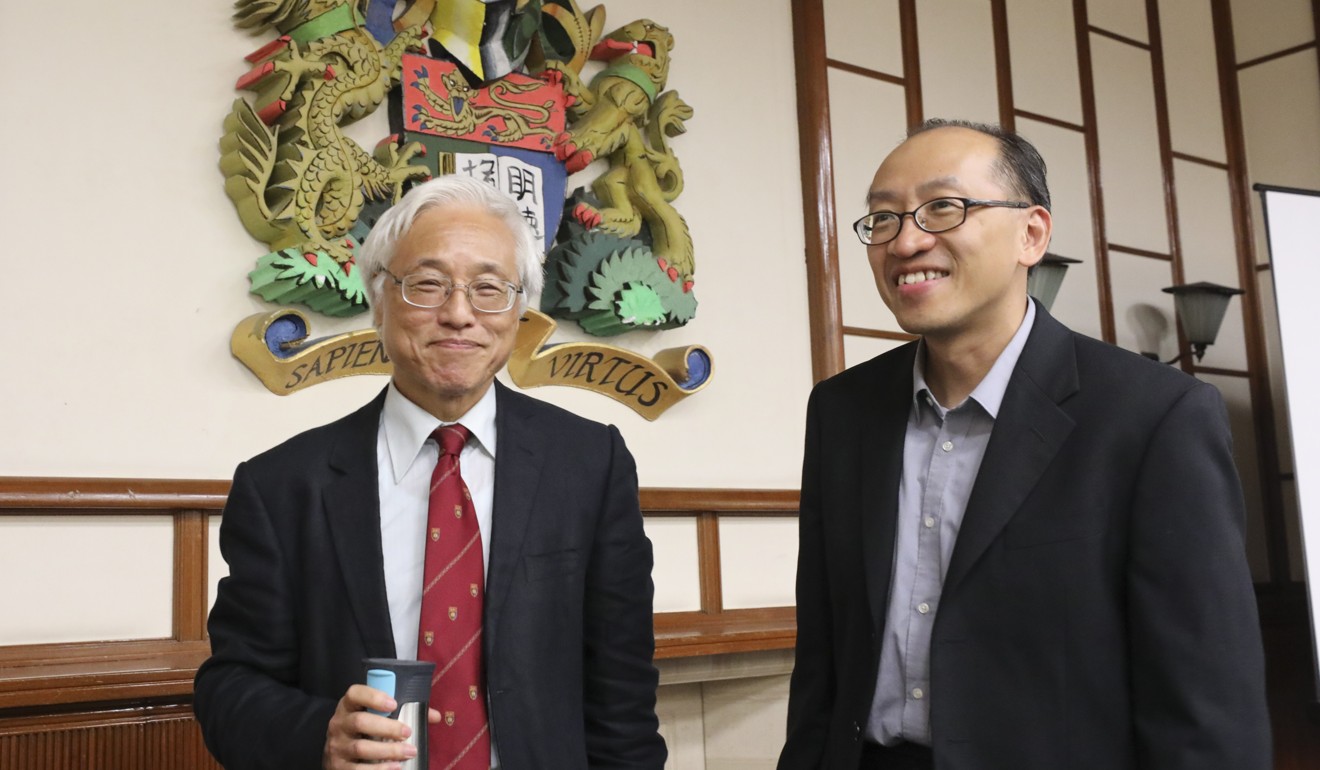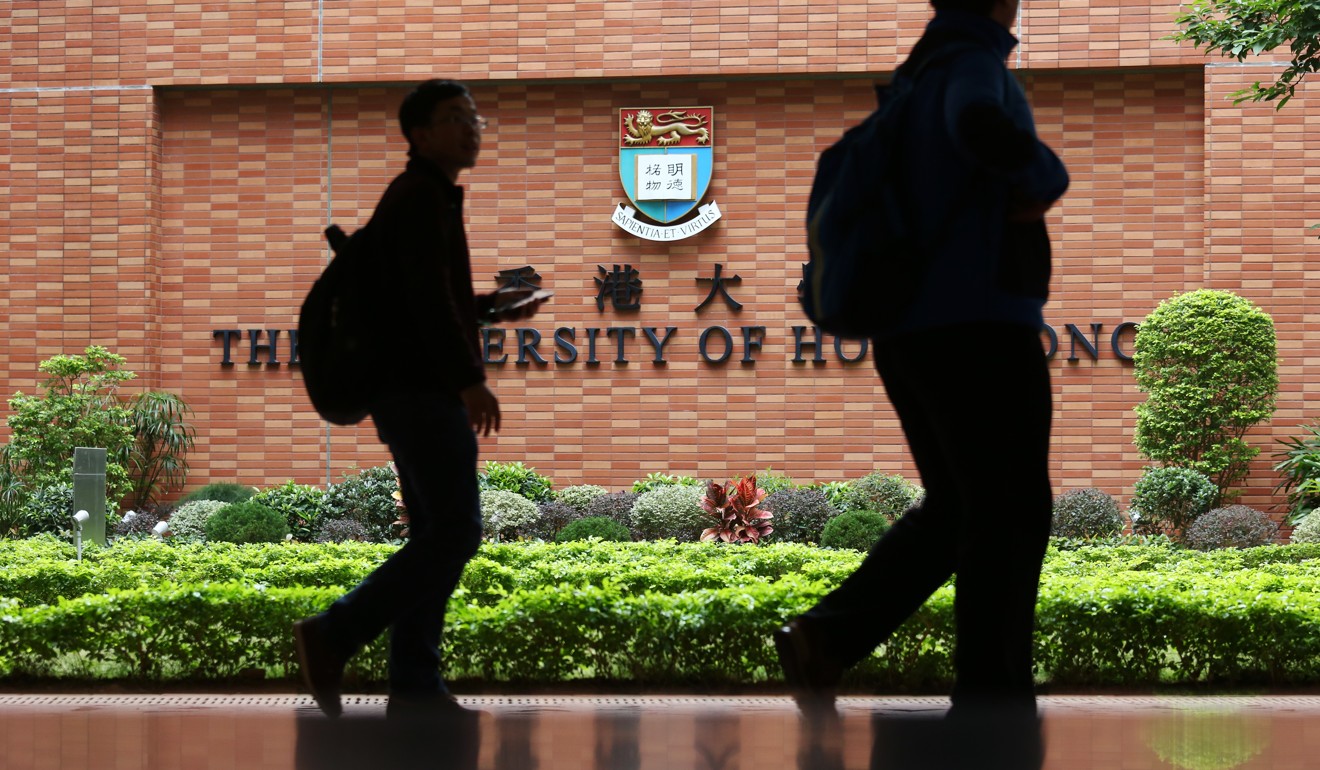
HKU academic staff express discontent over retirement at 60 in forum with management and alumni
- University stands firm over 2016 arrangement that gives discretionary extensions with non-tenured roles rather than contract renewals
- Staff have called for raising the retirement age to 65, complaining that extensions sometimes do not reflect research performance
The management of the University of Hong Kong were bombarded with questions over the transparency and fairness of its retirement policy in an intense two-hour forum involving staff and alumni on Monday night.
Dozens of academics who attended the forum held by the HKU Convocation, a statutory body of the institution comprising all graduates and teachers, were told by management that the current contract renewal arrangement for those who reached the retirement age of 60 was in everyone’s best interests.
HKU changed its retirement policy in 2016, with those turning 60 being given a new contract and a non-tenured position if approved, rather than simply having their contracts extended like before. For some, the switch to non-tenured positions would mean a pay cut.
Retired at 60: why even top academics face an age-old problem

All applications from professors seeking to work beyond 60 go first to their department and faculty heads, who in turn make recommendations to a committee chaired by provost Paul Tam Kwong-hang or the vice chancellor, depending on the applicant’s grade.
Professor Joseph Chan Cho-wai, a recently departed university council member, was dissatisfied that professors reaching 60 could be treated very differently, some being renewed for up to five years, others for two to three years while others still are unable to continue their jobs.
He said that five years ago all would probably have got an extension of five years with the same staff benefits, had they applied.
A contract of only two or three years was highly discouraging, said Chan, who has worked at the university for 28 years.

Professor Petula Ho Sik-ying, a leading expert on sexual and gender studies, who got a two-year extension rather than the five years she applied for, queried why the assessors for her retirement extension did not have multiple or external assessors. “They sometimes do not hear and do not understand,” she said.
“If you use Research Assessment Exercise (RAE) as assessment, this is fair. Then stick to RAE,” Ho said, adding that people who did not have good RAE performance got five years of extension while some with excellent RAE performance got only two. RAE is the University Grants Committee’s measure of research performance, intended to meet international benchmarks.
“Are there reasons other than academic or research excellence that are taken into account by my so-called peers who may not even know my area?” Ho said.
Forced retirement is ‘age discrimination’, Hong Kong cabinet member says
In response, provost and deputy vice-chancellor Professor Tam appealed to his colleagues not to turn the discussion into an emotional issue nor to deem a contract renewal of only two or three years to be humiliating.
Tam also added that the best use of the school’s limited resources was to ensure that both the need to recruit new staff and retain existing staff in the right roles could be satisfied.
Tam said he was affected by the retirement policy too, but declined to elaborate on his own case.

HKU is among four publicly funded universities that have retained 60 as the retirement age. The others are Polytechnic University, Baptist University and Education University, and all have the discretion to extend an academic’s service depending on merit and staffing needs.
HKU’s staff association has failed in its repeated attempts to raise the retirement age to 65, even after a 2013 staff survey showed an overwhelming proportion of academics were in favour of it.
Assistant Professor Max Wong from the faculty of arts, 49, is working on his second contract at the university. He said retirement at 60 discouraged junior staff from working at the university as they have to plan for the future in their early 50s.
Professor Sea-ling Cheng from Chinese University shared statistics of the rising age of academic staff in the US and Canada, where there is no compulsory retirement age.
Retirement at the age of 60, she said, was a loss to the university’s investment in the reputation, knowledge and experience of full professors. She added that retirement at 65 was also a means of addressing the gender imbalance, as female staff often face delays in their academic careers because of family needs.
